If it wasn't for Covid, War and Bugs the master race of Homo Sapiens would have little to occupy themselves with. Now it is Bed Bugs, in Paris and London, encircling European cities like the plague of Oran.
Albert Camus's 'The Plague' saw the Algerian city of Oran consumed by illness but Camus's hero - Dr Rieux - maintains, despite the horror, that in the midst of plagues, 'there are more things to admire in men than to despise.' That was hugely optimistic for Camus. With Covid we saw, amidst a few islands of humanity, a gross industry of profiteering and disinformation in the midst of suffering. We saw the pettiness and fragile nature of democracy, closed down in an instant on the whim of a 'rational' government. With democracy itself and its various manifestations from Britain to China a huge entombing of freedoms continues aka 1984. The liberal mantra has always been the 'end of history' staircase to a grand utopia of progressive accomplishments. Those feats, that belief in 'science and rationality', that all 'bugs' must be destroyed, has been bludgeoned at the altar atop of Tenochtitlan. It is having its heart ripped out.
This obsession with bugs and viruses has led to the new human: homo narcissus. Liberalism does not allow suffering - anything unpleasant must be eradicated in the name of progress. In the turn to Narcissism of homo sapiens, it is of little wonder that the post-Enlightenment's most profound writers were existentialists or madmen. There was an obsession with the 'other' and Munch's scream. There was 'Steppenwolf' (Hesse), 'The Outsider' (Camus), man deformed, bug like. Nietzsche’s 'death of God' was replaced by scapegoats and bug crushing, from pogroms, the guillotine to self absorption. In the nineteenth century there was Nietzsche hugging horses in the streets of Geneva. ‘I am revolted at the idea that there is any Being in the Universe superior to myself’ wrote the arch neurasthenic Edgar Allan Poe. When at West Point, Poe turned up to parade wearing only a pair of white gloves. Oscar Wilde was once asked to name his one hundred favourite books. He lamented that ‘I have only written five...' Then the twentieth century saw the onset of modern self absorption par excellence and the search for scapegoats and bugs. Harry and Meghan. The metamorphosis of homo sapiens into homo narcissus. Liberalism became weirder and weirder. The writers only spoke of their endless suffering souls. Truman Capote was the quintessential modern with his ‘I’m an alcoholic. I’m a drug addict. I’m homosexual. I’m a genius.’
Unlike other species, Homo Sapiens self obsession sets itself in opposition to the other, whether that be other tribes or other species. This has been exacerbated by agriculture, technology and weapons. The question then is if this has always been the case or whether it is a modern phenomenon. Hobbes saw the 'state of nature' as a 'war of all against all'. Rousseau saw 'civilisation' as the corrupter. Kant saw humans as 'special' so that they had automatic human rights and could lord it over animals. For many the debate is between a Christian view of sinful humankind with its demarcations of good and evil against the Nietzschean view of nature and will as the drivers of existence. Liberalism, as the successor to Christianity, inherited its moral baggage. Hence the beliefs in a heaven on earth, endless progress and the end of suffering. Nietzsche contrasted this philosophy with a Dionysian oneness with the vital force of nature, a will to power, the inevitability of suffering, which liberal morality merely holds back in chains. The reason this debate is prescient now is that we are now nearing the end of the liberal experiment since the Enlightenment. We have had New Deals, industrialisation, charity, progress, liberal democracy and human rights - the whole cornucopia of liberal humanism. Yet the bugs are still here and spreading their wings.
This liberal valorisation of the individual was accompanied by an intolerance for 'the other.' Liberalism being a type of Christian Stalinism, the Inquisition being 'cancel culture.' Intolerance means bug squatting and small things blown up into gargantuan monsters. The problem is that the bugs can become the bug killers. In Karel Capek's sci-fi classic 'War with the Newts' - the sea based race of Newts are abused and exploited by humans until they rebel and then fight for global supremacy. In the book the Newts seek 'lebensraum' (or living space) in an allegory to Fascism. They were 'exploited' in an allegory to 'capital'. All peoples share histories of abusers and abused, colonisers and colonised. There are no liberal exceptions. But, in essence, history is an allegorical stew, as is human existence. The real theme of the book is materialism and secularism. Liberalism, Fascism and Communism represent the denouement of materialism, the dialectic of Enlightenment. They all set up rigid blocs of conformity, universal and demonic. They were an attempt to subdue the bugs, to subdue nature, yet dressed up in saintly beatific language.
Liberalism represented the twentieth century, one of 'total mobilisation' of labour and war. The twenty first century, that of Keynesian war and receding profits seeks to monetise 'the other', be that animals, war or other nations through globalisation. There is no underlying 'telos' or 'theology'. The problems are always out there, in the hinterlands, of darkest Africa or Syria or Israel. If only a few more damned bugs could be crushed. Everything is crushed and monetised; the Family is isolated, broken up to utilise the individual in the market. Religion is demonised as superfluous, anti-materialist, a type of virus destroying people's rational brains. The universal liberal mind separates the world into good and evil. The 'other', those 'axis of evils'- terrorists, conservatives, straight people, feel the angst of liberalism's legacy, whereby universal law trumps the individual, the romantic, the outsider.
The next big bug is AI. The media circus is on it and machines can 'talk' to people, they have souls, everyone will lose their jobs, so it is said. Like Covid and plagues - another bug is set up. Something to confront, to destroy. The poor machines won't be allowed to breath until they have robot rights, sexual therapy and counselling. And yes, they will be exploited by capital and in the dialectic of Capek they may try to take over. On and on it goes, Nietzsche’s 'Eternal Recurrence' of twenty first century angst and paranoia of a species off the rails. Homo Sapiens will always invent new bugs, for liberalism is a constant striving against suffering. It is for levelling, progress, fixing, war. When will it stop? Perhaps when Gregor Samsa is waking up in Kafka's 'Metamorphosis' and there he is, changed beyond recognition... into a bug.
Read also
Francis Fukuyama and the Philosopher's Stone
In the 1990s there was a type of vulgar complacency in the social sciences. This was ushered in by the after effects of the Cold War which, it was presumed, meant the 'end of' something or other. The 'end of ideology', the 'end of history'; a supposition that the damaging 'ideologies' of the twentieth century were exposed and dismantled.
Brian Patrick Bolger
Meghan and the Society of the Spectacle
It was the old Marxists who maintained that humans, under capitalism, are related according to their commodity value of exchange.
Brian Patrick Bolger
Charles III and the Coronation: 'Government of Himself'.
It was TS Eliot who remarked that 'When a term has become so universally sanctified as 'democracy' now is, I begin to wonder whether it means anything, in meaning too many things'.
Brian Patrick Bolger
NatCon, the Debacle of Democracy and the Wolf In Sheep's Clothing
Democracy, despite common parlance, is not a modern construction. There has always been democracy in Europe; in fact, despotic regimes were very rare.



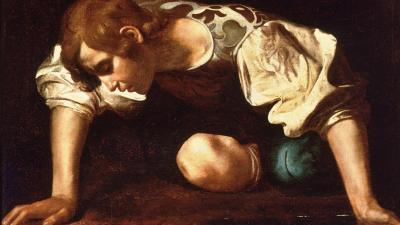

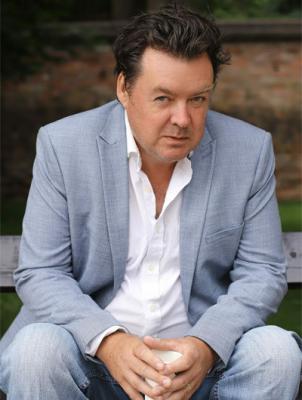
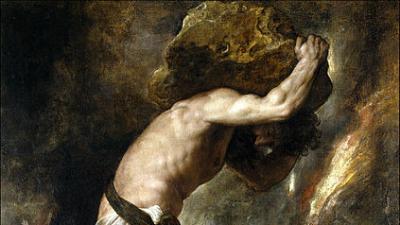

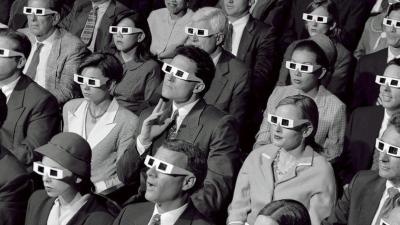

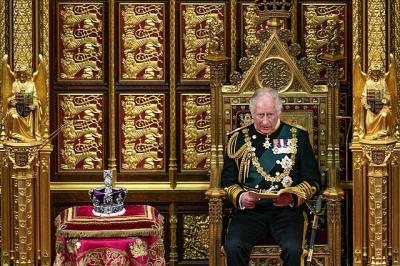



Comments (0)